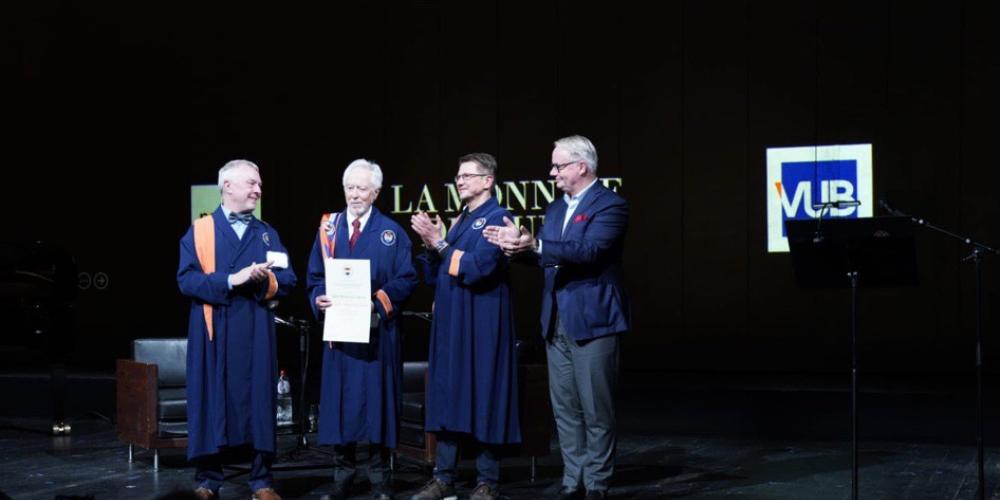
On Monday 13 October, J.M. Coetzee received an honorary doctorate from the Vrije Universiteit Brussel at De Munt. With this recognition, the VUB celebrates not only one of the most acclaimed writers of our time, but also a literary mind who uses fiction in an extraordinary way to question the world around us. We asked a few VUB community members what Coetzee’s work means to them.
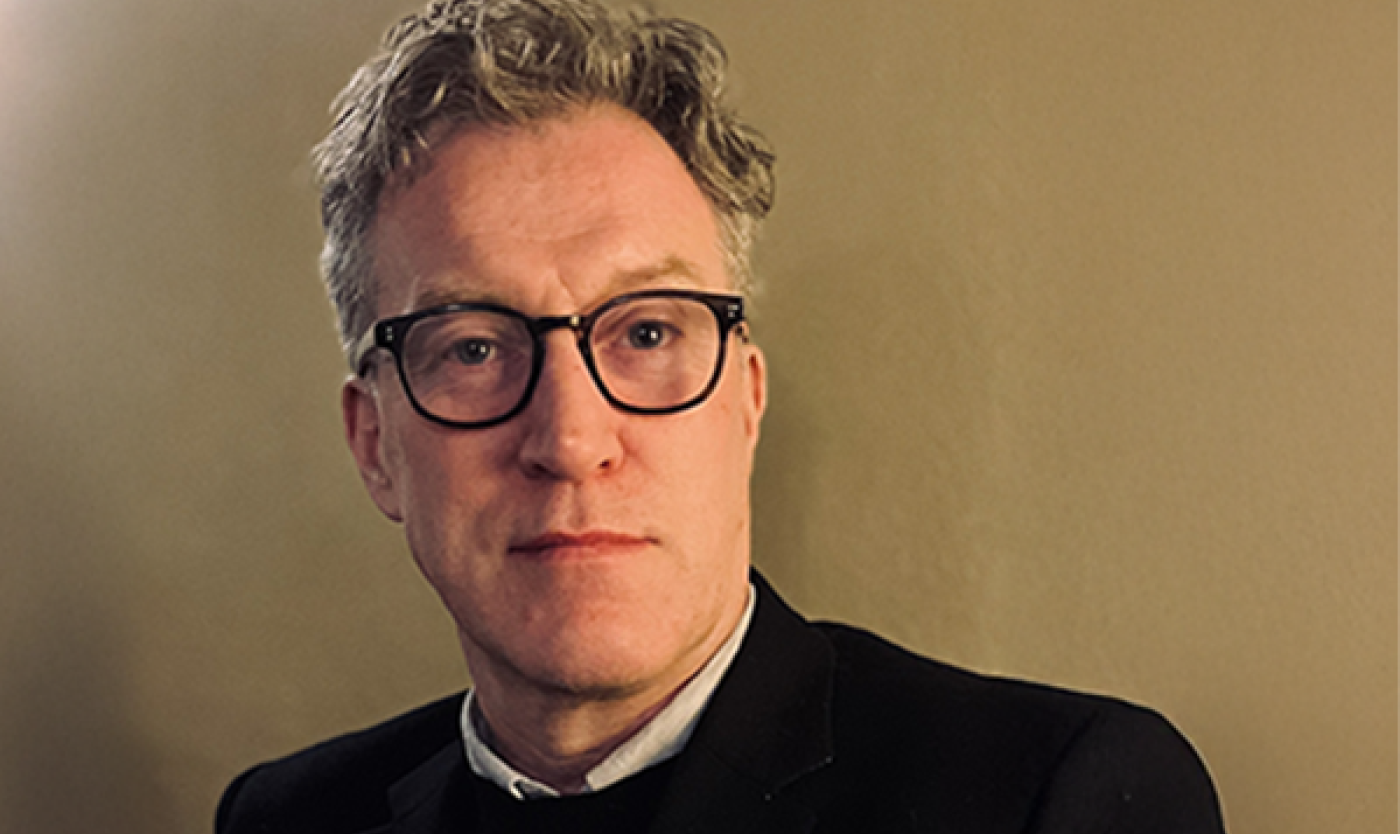
“No concessions to the reader”
Mike Lynch, alumnus
Mike Lynch obtained his Master’s degree in Linguistics and Literary Studies at the VUB in 2024.
“Coetzee wasn’t a research topic for me; I mainly studied him from the perspective of the reader. I first encountered his work when I was living in London, around the time Nelson Mandela was released. I wanted to learn more about literature under apartheid and began reading South African writers such as Gordimer, Brink and Coetzee. Among others, I read Waiting for the Barbarians and Life & Times of Michael K, and I was deeply moved — especially by the way he approaches his subjects.
Honestly, I expected someone who took clear and outspoken political positions. But he never reveals what he really thinks. As a reader, you’re left slightly bewildered. That’s what’s fascinating — he places the responsibility on the reader to form their own opinion. He never directly writes about the apartheid regime as such — a brutal, oppressive system — but rather about obscure regimes that abuse power. This allows his themes to resonate with other conflicts and situations across the world.”
“I’m a huge fan of Dostoevsky, and when I read The Master of St Petersburg, I realised Coetzee was too. He’s a true literary craftsman — you can feel his admiration for his predecessors, and he often reinterprets their work within his own. It was through that novel that I discovered Dostoevsky had written The Devils — something I hadn’t known before.”
“I also encountered Coetzee’s work in another, indirect way. My master’s thesis focused on W.G. Sebald, and I found many parallels between the two. Both chose self-imposed exile. Sebald left Germany to settle in England. Coetzee went first to the UK, then to the US, and finally returned to South Africa before settling permanently in Australia. Both are deeply marked by the political systems they grew up under. I have the impression that this left a profound impression on Coetzee as a child. Like Sebald, he approaches his subjects indirectly. Neither of them makes any concessions to the reader — and they certainly don’t make things comfortable for us.”
“Interested in how violence manifests in fiction and literature”
Deniz Gundogan Ibrisim, literary scholar and postdoctoral researcher
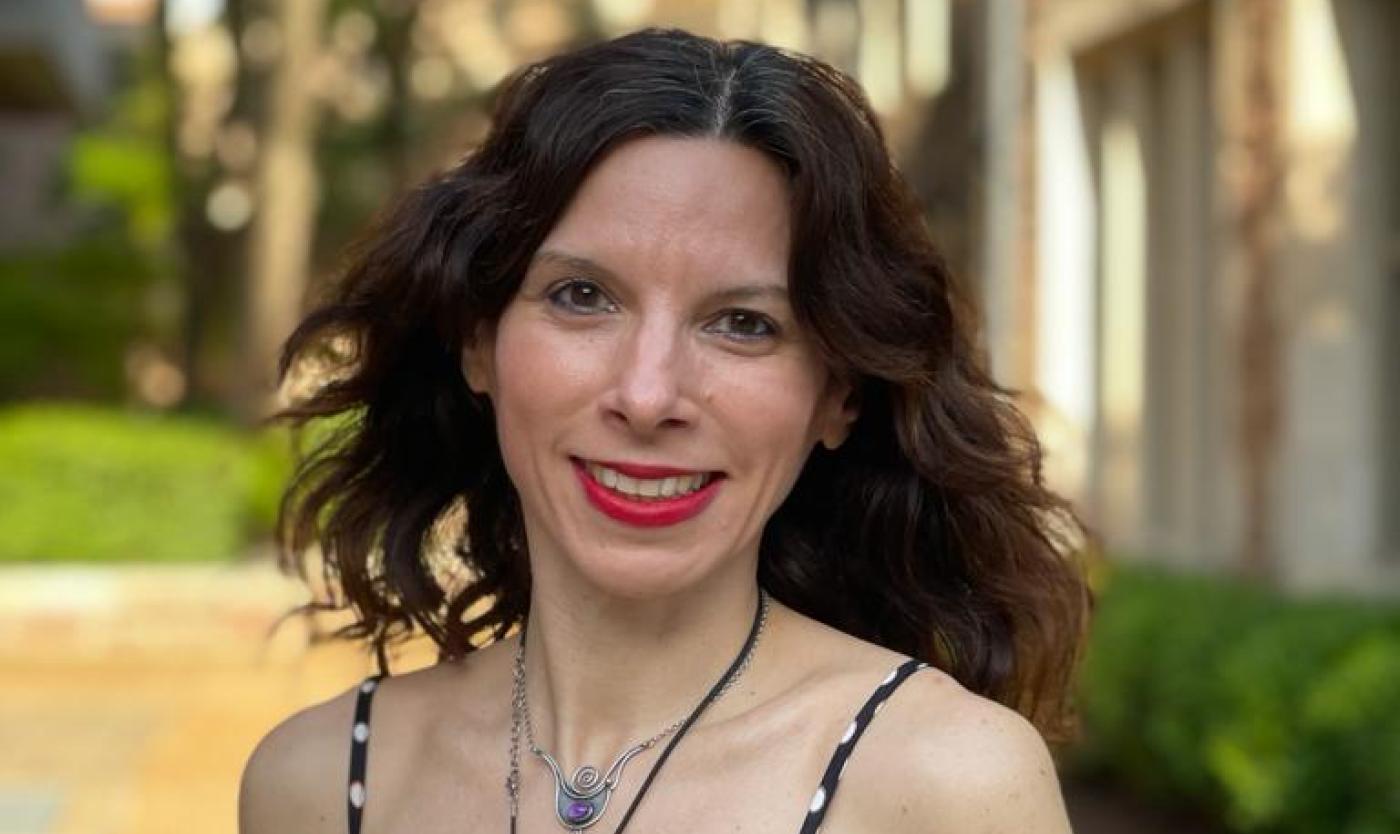
Literary scholar Dr Deniz Gundogan Ibrisim studied Coetzee’s work as part of her PhD research. She’s now putting the finishing touches to her forthcoming book, Toward a Slow Trauma and Environment in Anglophone World Literature. Deniz is an Assistant Professor at Kadir Has University in Istanbul and this semester joins the Centre for Literary and Intermedial Crossings at the VUB as a postdoctoral researcher.
“My specialisations include cultural trauma and memory studies, gender and sexuality studies, postcolonial theory, twentieth- and twenty-first-century Anglophone and Turkish literature, and environmental humanities. I recently worked on a project exploring artistic and literary representations of climate trauma and grief in contemporary Turkey.”
Deniz’s research examines how world literature addresses trauma, memory and questions of racial, social and ecological justice within intercultural contexts across the Global South — and that naturally led her to Coetzee.
“I studied his work through the lens of trauma studies — not just the impact of trauma on individuals, but also on landscapes and the environment. My upcoming monograph includes Coetzee alongside other South African writers. The topic has fascinated me since my MA and PhD at Washington University, where I began exploring literature through the perspectives of the Holocaust and trauma. Coming from Turkey, a country with a long history of military violence, I became intrigued by how violence is represented in fiction and literature.”

“The themes in Foe connect surprisingly well with issues like white saviourism”
Amalia de Roover, alumna
On Monday morning 13 October, Professor Elisabeth Bekers will discuss Coetzee’s Foe with students in her MA course Postcolonial and Postmigration Literature. One of her former students, Amalia de Roover, took the class two years ago. “I was pleasantly surprised by how the themes in Foe tied into my master’s thesis in Gender and Diversity. My research focused on development cooperation, and I chose white saviourism as my central theme — something that’s powerfully present in Coetzee’s novel.”
“Coetzee reveals more nuance than any political or journalistic discourse ever could”
Elisabeth Bekers, Professor of English Literature
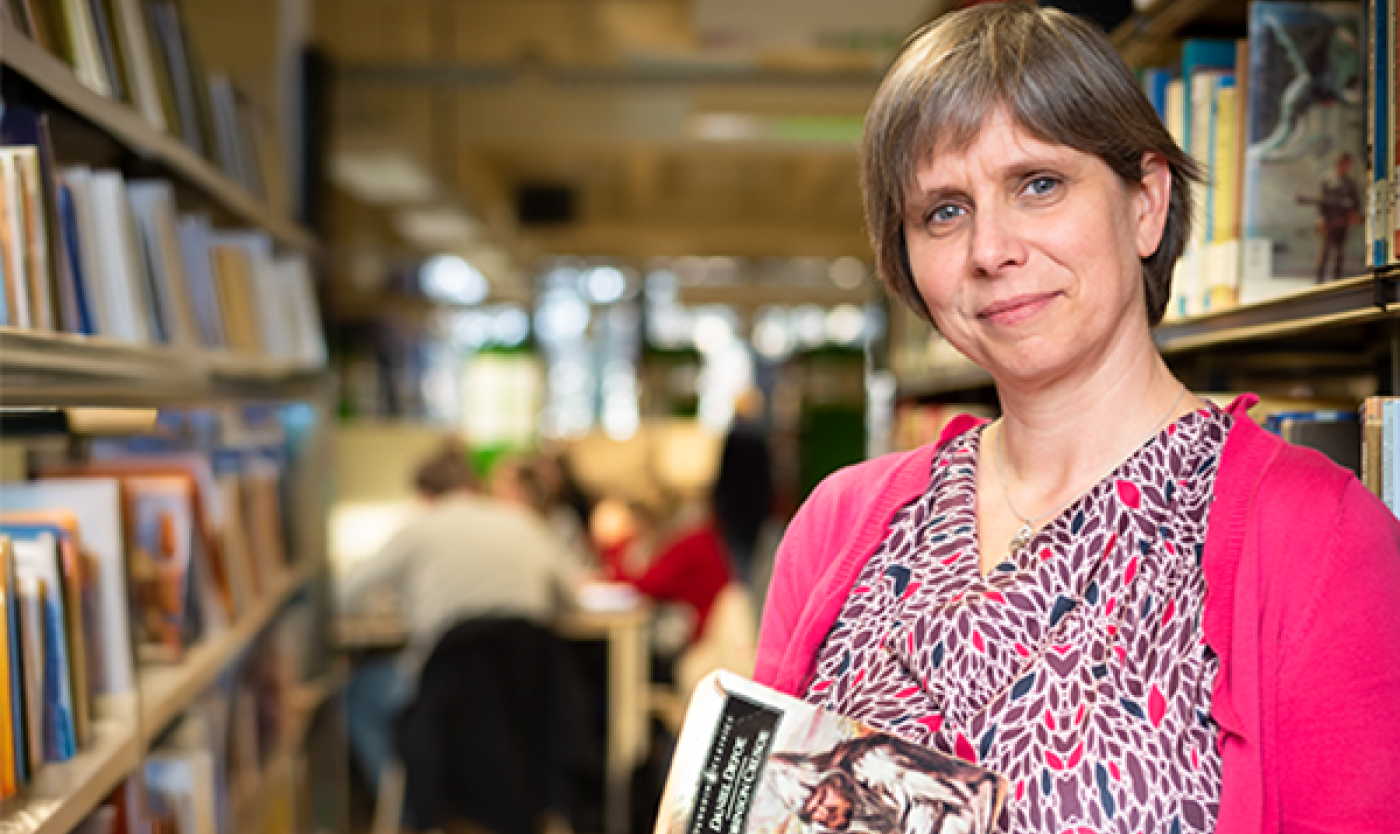
Professor Elisabeth Bekers explains: “Foe is a rewriting of Robinson Crusoe, and it’s an incredibly rewarding text to teach. The novel has faced criticism — notably from Kenyan author and critic Ngũgĩ wa Thiong’o — who argued that even in works critical of colonialism, colonised characters are often pushed to the margins.
He compared four major works to make his point: in Shakespeare’s The Tempest, the Italian duke Prospero is banished to an island where the native Caliban answers him back. A century later, in Defoe’s Robinson Crusoe, Friday submits to Crusoe, who ‘saved’ him. Two hundred years later, in Conrad’s Heart of Darkness, the African voice becomes mere background noise, uttering fragmented lines like ‘Mr Kurtz, he dead’. And in 1986, Coetzee’s Foe went a step further — Friday has no tongue at all.
The critique was that, although Coetzee was clearly aware of colonial injustice, Ngũgĩ expected African characters who would speak and rebel. Yet that’s the literary freedom of the author — and Foe remains a searing indictment of colonialism. That’s the beauty of literature: Coetzee still shows more nuance than any political or journalistic discourse ever could. As I tell my students, there aren’t fifty shades of grey — there are thousands.”
“I’m immensely proud that Coetzee will receive an honorary doctorate from our university on 13 October. He’s an author of rare calibre — twice a Booker Prize winner and recipient of the Nobel Prize in Literature. What strikes me most is his fearless rewriting of the literary canon. He’s unafraid to tackle vast issues, from his early critique of patriarchy and #MeToo in Disgrace — long before the movement began — to his ongoing concern with the environment and animal rights.
It’s remarkable how such a socially engaged writer chooses to stay out of the public spotlight. All the more reason to look forward to his visit.”
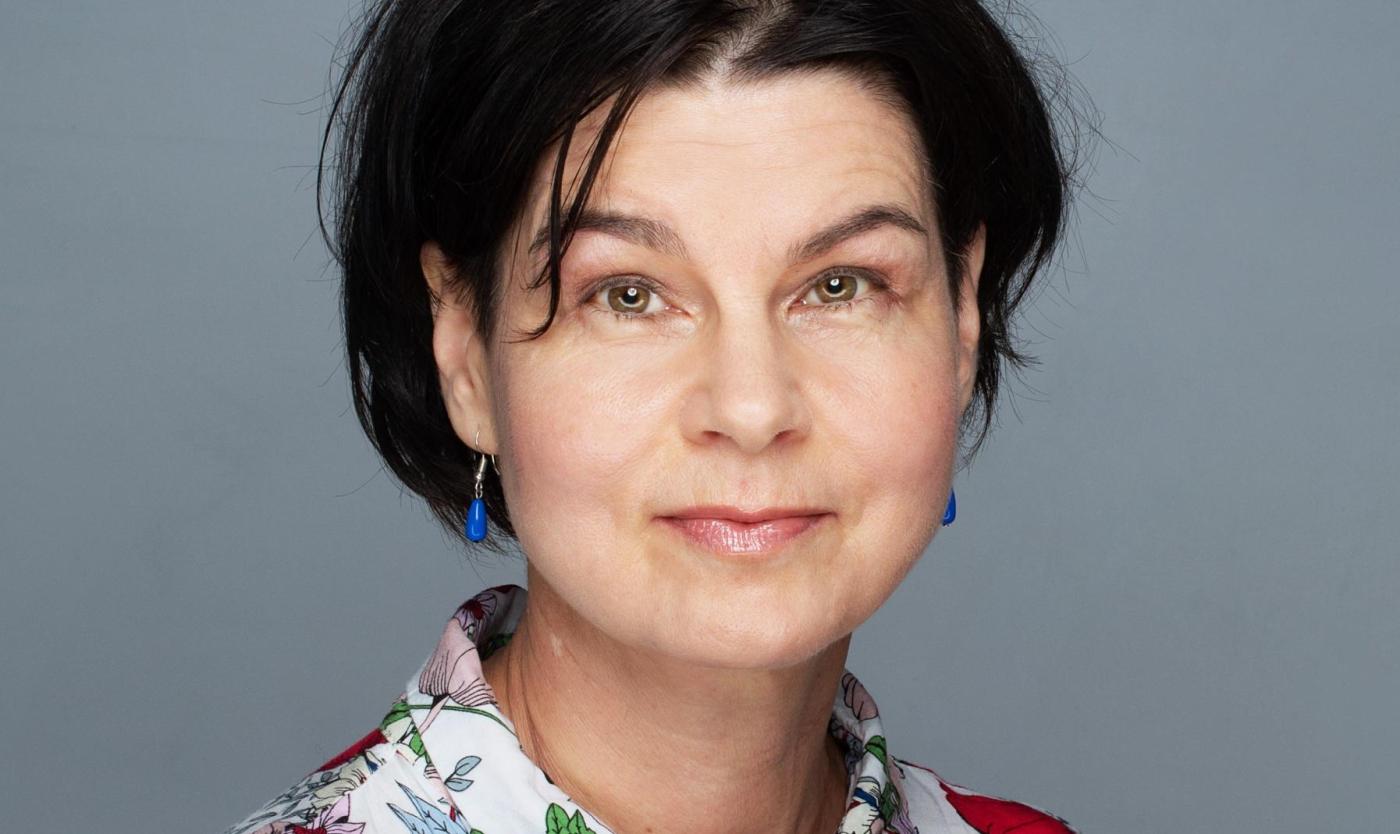
“He takes us into the minds of others who are not necessarily pleasant”
Eva Ulrike Priker, Research Professor of English and Comparative Literature
Eva Ulrike Priker is a research professor of English and Comparative Literature at the VUB. She is one of the driving forces behind Ties That Bind Us series at VUB, a platform that wants to give space to nuance and complexity in a polarized world. "On the surface, it seems polarized, but the world is not divided into two camps. In everyday life, people engage with each other across the divide propagated by the media, the social media, politicians, and we must not deny people's capacity for interaction. Literature can illuminate the world of others, and Coetzee is a master of nuance."
“It means a great deal to me that Coetzee is receiving an honorary doctorate. Literature is becoming less and less important in schools, and the culture of reading has changed. People continue to read, but literature is sometimes expected to create safe spaces and comfort zones. And those are precisely the things that Coetzee does not provide you with as a reader. He is a writer who challenges you to think, he takes you out of your comfort zone. His books take us into the minds of people who are not particularly pleasant, people with problematic pasts or desires. Take his 2003 book Slow Man, in which a 60-year-old man loses his leg in an accident. From one day to the next, that man becomes dependent on care. It is the small details from the seemingly ordinary life of that man that Coetzee elevates to a great drama. His Jesus trilogy is about what it means for people to leave everything behind and start a new life, in a new language. Coetzee deals with big questions about life in everyday situations.”
“He is a writer whose wit and uncompromising dedication to the craft I admire, and his work features in my research and teaching. He is a highly decorated writer who also thematises the 'task of the writer', most famously in the recurring figure of Elizabeth Costello. Much of his work has been adapted for film, theatre or opera. Hence, the upcoming collaboration for La Monnaie with composer Nicholas Lens is not an exception. Coetzee played an important role in the creation of most of these productions. He is extremely interested in the way his work travels through other media. At the same time, he is an avid reader himself: he has written essays about writers he admires. His own work is full of references to writers such as Dostoyevsky, Beckett, Kafka and von Kleist.”
"He is not a writer who sticks to what he knows. He broadens his horizons by engaging with people from all kinds of different backgrounds. What's especially important to me as a researcher engaging with transcultural phenomena and translation, is that he confronts linguistic boundaries and hierarchies but also explores boundaries in a broader sense. It's very resonant with my research on the border zones of literature and translation. Translation is the perfect training ground for nuance, it’s a moving around in a zone. It’s also an exercise in coming to terms with imperfection. In practice, when translating, you constantly have to make hard decisions. There is never one singular approach or theory. On a metaphorical level, translating means entering someone else's world of thought. Translation is a strong presence in Coetzee's life: He hails from a multilingual society. South Africa has 11 official languages, and Coetzee grew up in a bilingual context: Afrikaans, his mother tongue, and English, the language of instruction. Translation problems are also a recurring subject in his literary works. And they are a subject he finds worth investigating: The book Speaking in Tongues, which documents his exchange with Argentinian translator Mariana Dimópulos, offers an intricate philosophy of translation. Coetzee is known for his interactions with his translators - and understands the problems they face."
“There will be plenty of food for thought on Monday”
Koert Debeuf, Professor of International Politics and the Middle East
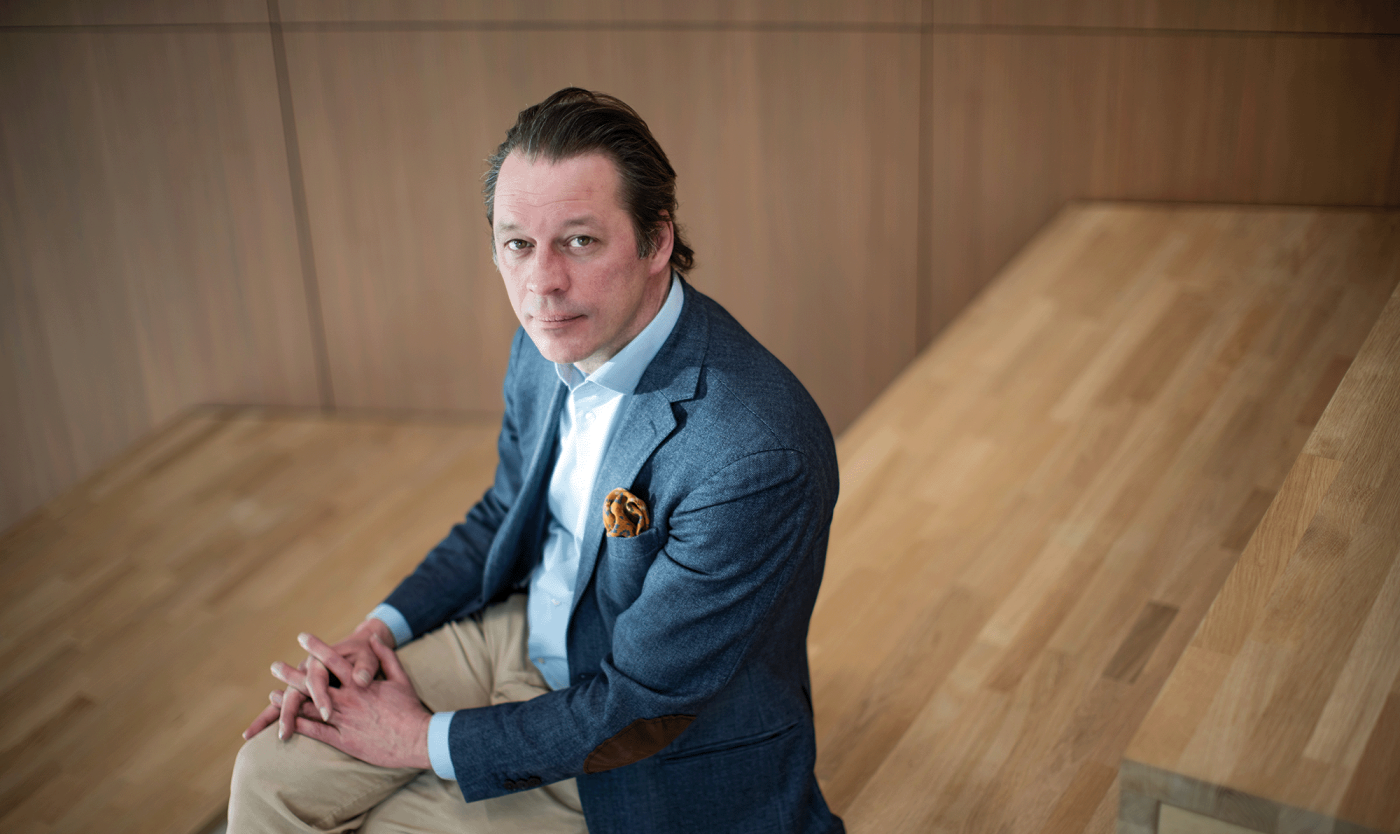
Koert Debeuf, Professor of International Politics and the Middle East at the VUB, now heads the Caroline Pauwels Academy of Critical Thinking (PACT).
“I was keen to ensure that the Coetzee event became part of PACT’s programme — even though it’s jointly organised with Passa Porta, De Munt, publisher Cossee and the VUB. It fits perfectly with PACT’s mission, since Coetzee’s literature inspires critical thinking. I’m not sure whether he’ll want to speak about his work — he’s known for rarely doing so. But he’ll be on stage with Belgian opera composer Nicholas Lens, who happens to be a good friend of mine. Through Nicholas, I’ve caught a glimpse of the man behind the author. Coetzee writes librettos for his operas — works that are surprisingly little-known in Belgium but acclaimed abroad.
That alone makes it worth highlighting this lesser-known side of Coetzee. Together they’ll discuss their collaborative opera, and the audience will hear excerpts from it. The programme will be tight — about ninety minutes — but intellectually speaking, there’ll be plenty to eat and drink.”
“One of my favourite books is Waiting for the Barbarians. Its central theme is fear of the unknown. It’s a brilliant story about a military outpost and a so-called barbarian tribe that no one has ever seen, yet everyone fears. The army arrives, the outpost becomes a fortress, and human rights are trampled. They march to battle — only to perish in the desert, never having seen a single barbarian.
The fight is lost to an imagined enemy. That idea of the ‘enemy’ recurs throughout human history — first Nazi Germany, then communism, later Islamism. How many of our enemies are imagined? Coetzee presents problems creatively and leaves it to the reader to find answers. His work stands the test of time — it’s rarely bound to a specific place or historical moment. Waiting for the Barbarians is as relevant today as when it was first written.”